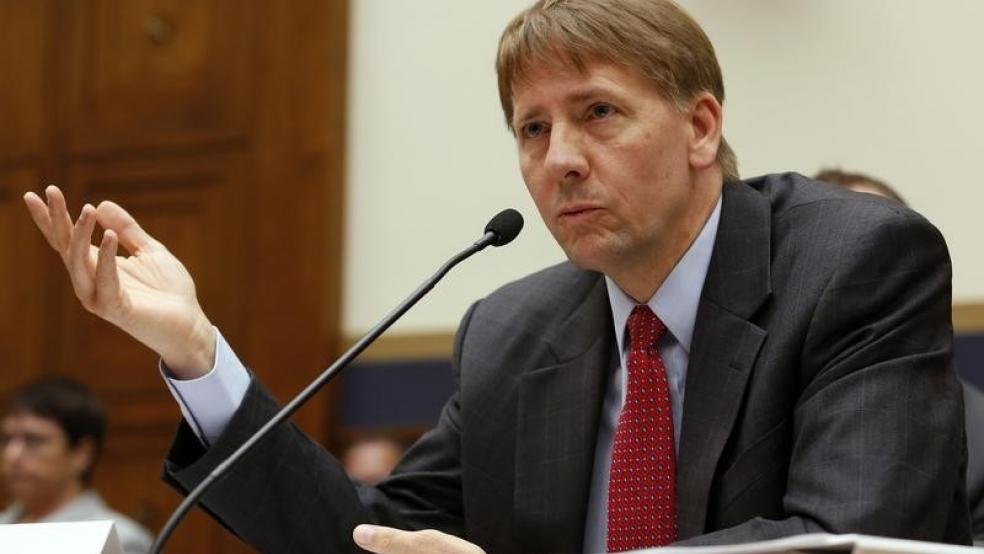A federal appeals court on Tuesday ruled that the leadership structure of the Consumer Financial Protection Bureau makes the independent agency -- one of the headline achievements of the Dodd-Frank Wall Street Reform and Consumer Protection Act -- unconstitutional.
The three-judge panel of the US District Court of Appeals for the District of Columbia Circuit ruled that because the CFPB is structured as an independent agency, and is managed by a single director rather than a board, it gives too much power to an individual. The CFPB director, furthermore, while appointed by the president, cannot be removed from his position before his or her term has expired, except for cause.
Related: Despite the Scandal, Wells Fargo Is Doing Just Fine
“The CFPB’s concentration of enormous executive power in a single, unaccountable, unchecked Director not only departs from settled historical practice, but also poses a far greater risk of arbitrary decision making and abuse of power, and a far greater threat to individual liberty, than does a multi-member independent agency,” the judges ruled.
In the ruling, the justices “sever” the element of the law covering the termination of the director, which they say brings the agency into compliance with the Constitution.
“With the for-cause provision severed, the President now will have the power to remove the Director at will, and to supervise and direct the Director. The CFPB therefore will continue to operate and to perform its many duties, but will do so as an executive agency akin to other executive agencies headed by a single person, such as the Department of Justice and the Department of the Treasury. “
The ruling is a bit of a constitutional bank shot, because there is nothing in the Constitution specifically preventing a government agency from having the sort of structure the Dodd-Frank Act gave the CFPB. However, it is being cheered by conservative activists and financial services trade groups who view the CFPB as an out-of-control regulator.
Related: Here’s How Bad the Insurance Claims for Hurricane Matthew Could Be
The agency was created so that there would be a central authority charged with implementing consumer financial protection laws -- a responsibility that had previously been parceled out across a patchwork of financial regulators. It was formed in the shadow of the financial crisis that helped bring about the Great Recession.
In just a few years, CFPB has been a vigorous pursuer of penalties against institutions and sometimes entire sectors of the financial services world, for what it sees as the mistreatment of customers. Most recently, CFPB was involved in the exposure of Wells Fargo bank for creating millions of unauthorized customer accounts.
However, from its founding, the CFPB has had powerful opponents, including many in Congress, who disapproved of the agency’s structure.
“This is a great day for limited government and the constitutional separation of powers,” said Sam Kazman, general counsel for the Competitive Enterprise Institute. “Today’s ruling will play a major role in providing proper accountability for this rogue agency.”
Related: Oil Prices Are Creating a Goldilocks Scenario for the Global Economy
Supporters of the CFPB said that they expect the government to challenge the ruling in the Supreme Court, and that they expect it to be overturned.
“We’re disappointed that a court would heed the self-serving demands of special interests to weaken the independence of a consumer agency whose work it itself called “critical,” said Ed Mierzwinski, consumer program director for U.S. PIRG and the U.S. PIRG Education Fund. “While this decision must be overturned, nothing in it denies the need for a strong CFPB.”





